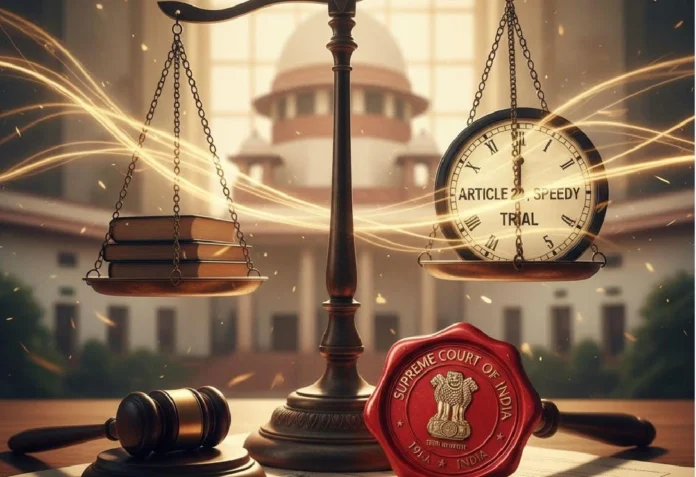By Dr Swati Jindal Garg
In a strongly worded judgment, the Supreme Court directed a return to the long-discarded practice of day-to-day hearings in criminal trials, calling fragmented, piecemeal proceedings a direct violation of citizens’ right to speedy trial under Article 21 of the Constitution.
The ruling came in CBI vs Mir Usman, where the Central Bureau of Investigation challenged the High Court’s decision to grant bail to a rape accused who had already spent over three years in custody. The trial had been dragging, with the victim’s testimony, complete, but cross-examination repeatedly postponed.
A bench, comprising Justices JB Pardiwala and KV Viswanathan, expressed concern that courts had abandoned an earlier tradition of continuous trials—followed diligently until about three decades ago—leading to prolonged delays, witness harassment, and a loss of faith in the system. The Court directed all High Courts to constitute committees to revive and monitor daily trial practices in district judiciaries. Trial courts have also been instructed to issue circulars ensuring that evidence is collected without interruption.
The Supreme Court laid down detailed guidelines to curb adjournments and delays, including:
- Witnesses must be examined day-to-day until all present are heard.
- Adjournments cannot be granted to suit the convenience of advocates.
- Bail may be cancelled if accused deliberately skips hearings.
- Amicus curiae may be appointed if defence lawyers delay trials.
- Courts may impose costs on accused to compensate witnesses for expenses.
The bench also highlighted the abuse of prosecutorial discretion, questioning the need to examine 30 witnesses in a rape trial. “It is the quality of evidence, not quantity, that matters,” the Court observed, urging trial judges to intervene if unnecessary witness examination prolongs proceedings.
The judgment stressed that Section 309 of the Code of Criminal Procedure, 1973 (now Section 346 of the Bharatiya Nagarik Suraksha Sanhita, 2023) already mandates expeditious trials with day-to-day examination of witnesses. Yet in practice, Indian courts continue to follow the culture of “tareekh pe tareekh,” dragging cases for years.
The Court concluded that while resource constraints and case backlogs had once forced courts to abandon daily trials, the costs of delay—borne by both victims and the justice system—now far outweigh any practical difficulties. Whether this push for revival can be sustained in an already overburdened judiciary, however, remains an open question.
—The author is an Advocate-on-Record practising in the Supreme Court, Delhi High Court and all district courts and tribunals in Delhi


